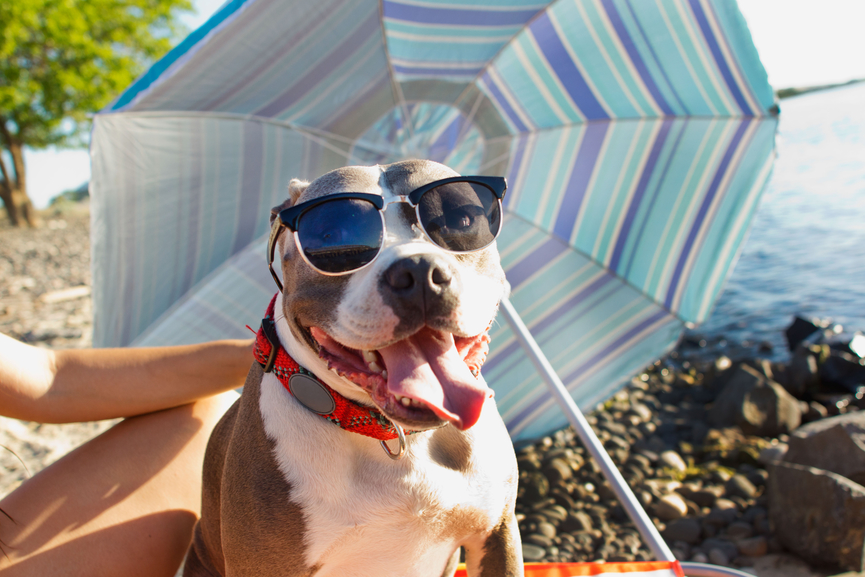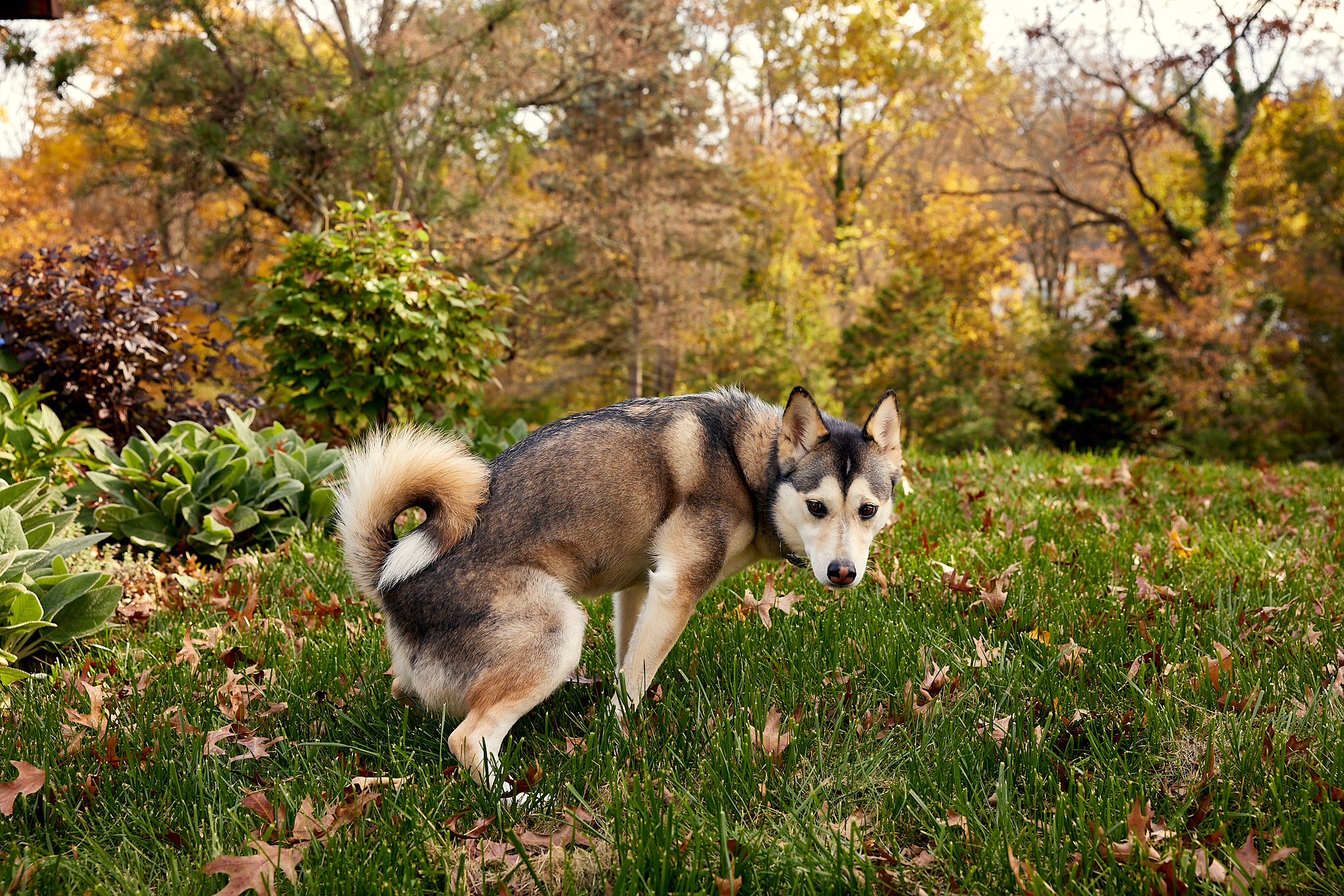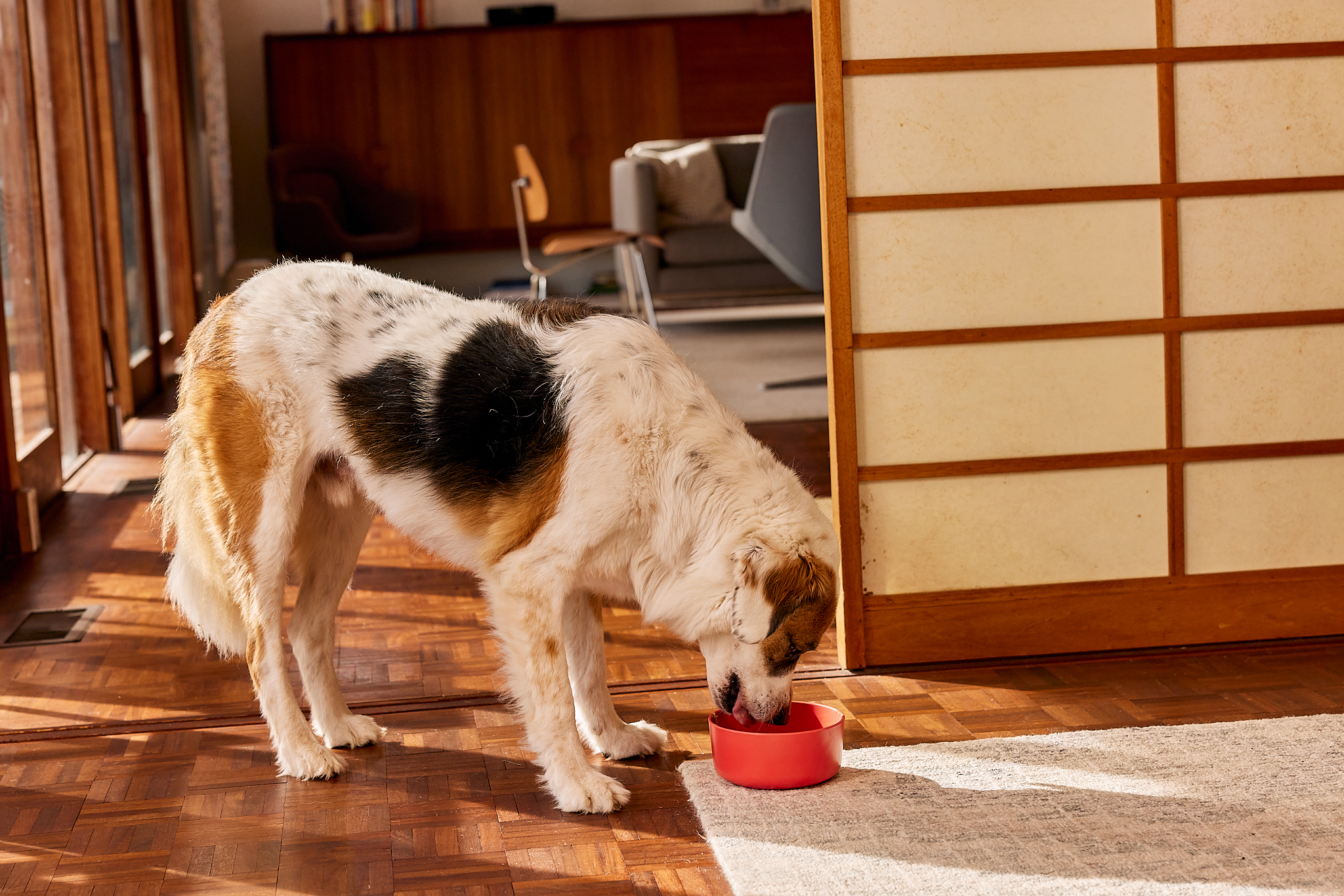Hey Ollie blog readers! We’re offering you an exclusive 60% OFF your starter box! Try now!
Digging in the sand at the beach, long games of Frisbee in the park, accidentally dropped ice cream cones—summer might just be the best time of year for pups. Unfortunately, the longer days and hot temperatures can put your doggo at risk for some unexpected health hazards. We spoke to New York-based veterinarian Dr. Babette Gladstein to get the scoop on the season’s top dangers to dogs. Here, what to watch out for and how to keep your pup protected.
Too much sun
Sunburns aren’t just a human problem: “White dogs have fairer skin and breeds with tight coats, like Pit Bulls and Chihuahuas, are particularly vulnerable to getting burned because more of their skin is exposed,” says Dr. Babette. If you’re tempted to trim your canine’s hair to keep them cool in warmer weather, don’t. “Sheering them down will just make them more susceptible to sunburn,” says Dr. Babette.
How to protect your pup: Stay indoors during peak heat hours and make sure your dog has access to shade. “You can also apply Epi-Pet sun protector, the only FDA-approved sunscreen for animals,” says Dr. Babette. If your pup’s skin turns pink or they become sensitive to light touching, that may be a sign they’ve gotten too much sun. “Soak them in an oatmeal bath or chill natural aloe in the fridge and massage the gel into their skin to soothe a sunburn.”
Sizzling sidewalks
You know how hot sand can burn the hell out of your bare feet? It’s the same for your pup’s paws—except not just at the beach. “Remember, you have shoes on they don’t,” says Dr. Babette. “Hot pavement can burn their paws, leaving dogs limping with redness, pain and blisters.”
How to protect your pup: Stick to grassy or shady areas when it’s hot out, or consider socks with grips on the bottom like Power Paws. “If their paws do get burned, use cool—not cold—wash rags to bring the temperature down and some chilled aloe from the fridge,” says Dr. Babette. “If you notice any open sores that don’t heal quickly, visit the vet to make sure there isn’t an infection.”
Pesky ticks
“Tick-borne diseases have become an epidemic thanks to milder winters due to climate change. It’s enabled ticks to survive and expand at a dramatic rate,” explains Dr. Babette. “Lyme disease is the most well known, but we’re seeing significantly higher rates of all tick-related illnesses—from Rocky Mountain spotted fever to Anaplasmosis—all across the country.”
How to protect your pup: Check your dog’s skin for ticks regularly with a flea comb. “If you find one, remove it carefully with tweezers and put it in a sealed container to take to your vet and get it tested,” says Dr. Babette. While ticks are most commonly found in wooded areas and marshy spots near lakes and oceans, you can even find them in the middle of New York City. Research all of your tick prevention options, and talk to your vet about chewable pills that can help protect your dog for up to a month.
Dehydration and overheating
You know how thirsty you get on a 90 degree day? All that fun in the sun can make your pup parched too. If he doesn’t get enough water or isn’t able to cool down, your dog could suffer heat stroke when their body temperature rises too high—this is most often due to over-exercise or sitting in a hot car for too long.
How to protect your pup: Always give your dog unrestricted access to clean water (check out our tips for how much they need to drink) and look for warning signs of dehydration. “Stick your finger in your dog’s mouth and check their gums—if they’re dry instead of moist and shiny, it means they need to drink more water,” says Dr. Babette. Never leave your dog in a parked car and if you’re worried your dog may be overheated, hose down their feet. “The best way to cool a dog down is through their paw pads,” says Dr. Babette.
Water worries
Not all dogs have mastered the doggie paddle! And certain breeds, like bulldogs, really can’t swim at all. “Some may be frightened of the water and can drown if unsupervised,” says Babette. “Ask yourself, “Would I do this with a kid?” If not, you shouldn’t feel comfortable doing it with your dog either.”
How to protect your pup: If your pup has never been in the water (or you’re not sure) get a dog life jacket and go in with them the first time to make sure they’re comfortable. Whether it’s a saltwater or chlorine pool, don’t let them drink the water and hose them off with after they get out to rinse off any excess salt or chemicals. As for the ocean, stay close the shore. “Not all dogs are strong enough to swim against the currents,” says Dr. Babette. If you’re on a boat, best practice is to make sure they’re wearing a floatation device.
The Ollie blog is devoted to helping pet parents lead healthier lives with their pups. If you want to learn more about our fresh, human-grade food, check out MyOllie.com.
Tagged As:

The nutrition your dog needs,
the food they want.

Enjoying our articles? Subscribe our Newsletters and get new articles directly to your inbox
You might also like
3 July 2025
5 MINS READ
How Fresh Food Can Help Your Dog Have Perfect Poops
As a pup parent, you’re likely very familiar with your dog’s bathroom habits. While it may not be the most glamorous part of taking care of your pup, a dog’s stool can be one of the most dir…
by Ollie Pets
4 June 2025
5 MINS READ
How Can Fresh Dog Food Help with Weight Management?
Maintaining a healthy weight is one of the most important aspects of your dog’s overall health and longevity. Being overweight or underweight can result in health complications and conditions that…
23 May 2025
5 MINS READ
Why Fresh Dog Food Makes Happier, Healthier Dogs That Live Longer
Every pup parent wants their dog to live a long, happy life, and the path to a healthier, happier dog starts with what’s in their bowl. Recent research and expert insights reveal that fresh dog …
by Ollie Pets







